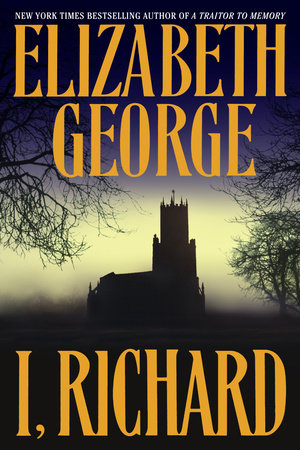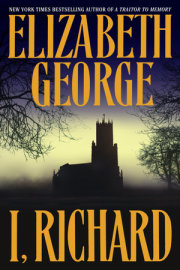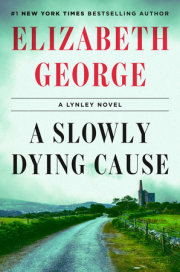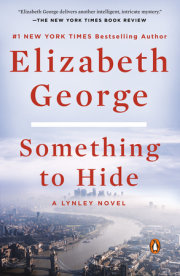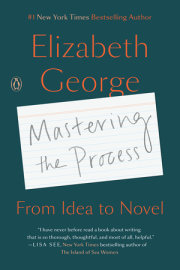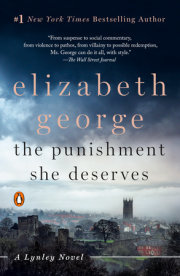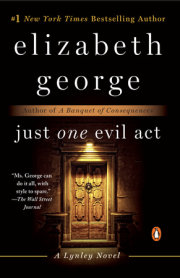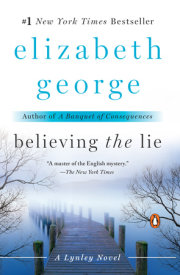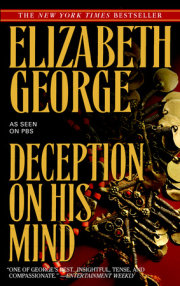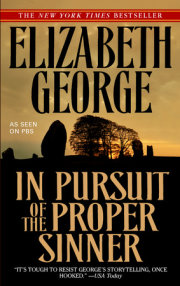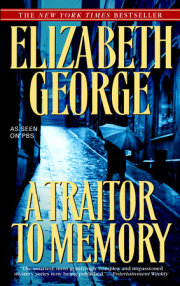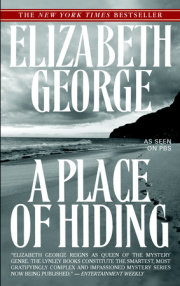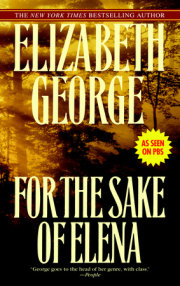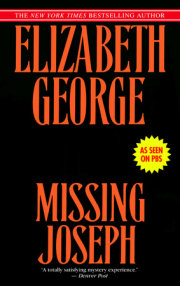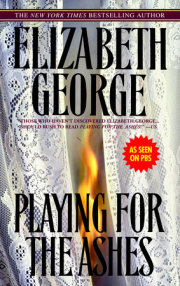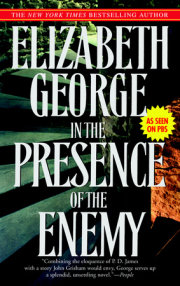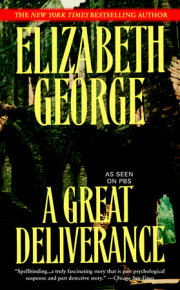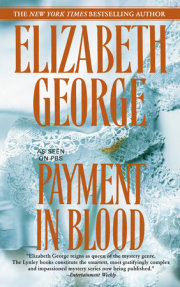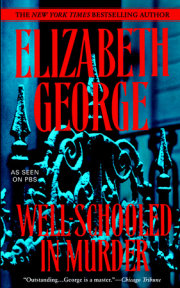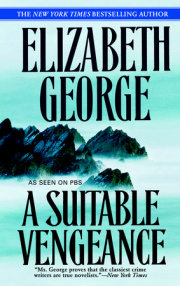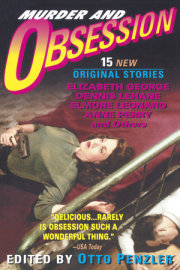Exposure
When members of the history of british architecture class thought about the Abinger Manor Affair later on, each one of them would say that Sam Cleary had been the likeliest candidate for murder. Now, you might ask yourself why anyone would have wanted to kill a harmless American professor of botany who--on the surface at least--had done nothing more than come to Cambridge University with his wife to take part in a summer session at St. Stephen's College. But that's the crux of the matter, you see, the with his wife part of it. Old Sam--seventy if he was a day and a spiffy dresser with a bent for bow ties and tweeds even in the middle of the hottest summer England had seen in decades--tended to forget that his wedded Frances had come along for the experience as well. And when Sam forgot that Frances was there, his eyes started wandering in order to take a visual sampling of the other ladies. It appeared to be second nature to the fellow.
This visual sampling might have been something that Frances Cleary could have overlooked. Her husband, after all, couldn't be expected to walk around Cambridge with blinders on, and Cambridge in the summer brought out fine ladies like mayflies looking for barbecues. But when he took to spending long evenings in the college pub, entertaining their classmate Polly Simpson with tales of everything from his childhood spent on a farm in Vermont to his years in 'Nam where, according to Sam, he saved his entire platoon single-handedly . . . well, that was too much for Frances. Not only was Polly young enough to be Sam's granddaughter and then some, she was--if you'll pardon the expression--drop-dead gorgeous and blonde and curvy in a way that poor Frances hadn't been even in her glory years.
So when the night before the Day in Question saw Sam Cleary and Polly Simpson in the college pub laughing, talking, teasing each other as usual, giggling like kids--which at twenty-three Polly still was, as a matter of fact--and acting otherwise like individuals with Something Specific on Their Minds till two in the morning, Frances finally had words with her husband. And her husband wasn't the only one to hear them.
Noreen Tucker was the messenger delivering news of this delicate subject over breakfast the next day, having been awakened by the sound of Frances's accelerating displeasure at two twenty-three in the morning and having been kept awake by the sound of Frances's accelerating displeasure till exactly four thirty-seven. That was when a slamming door punctuated Sam's decision to listen no more to his wife's accusations of heartless insensitivity and insidious infidelity.
Under other circumstances, an unwilling eavesdropper might have kept her own counsel regarding this overheard marital contretemps. But Noreen Tucker was a woman who liked the spotlight. And since she had so far achieved precious little recognition in her thirty years as a romance writer, she took her bows where she could.
That's what she was doing on the morning of the Day in Question, as other members of the History of British Architecture class gathered to break bread together in the cavernous dining hall of St. Stephen's College. Dressed in Laura Ashley and a straw boater in the mistaken belief that projecting youthfulness equated to youthfulness, Noreen imparted the salient details of the Clearys' early-morning argument, and she leaned forward with a glance to the right and the left to underscore both the import and the confidential nature of the information she was sharing.
"I couldn't believe my ears," she told her fellow students in breathless summation. "Who looks milder mannered than Frances Cleary, I ask you, who? And to believe she even knew such language existed . . . ? Why, I was just slayed to hear it, truly. I was completely mortified. I didn't know whether I should knock on the wall to quiet her down or go for help. Although I can't imagine the porter would have wanted to get involved, even if I'd gone for him. And anyway, if I'd actually gotten involved in some way, there was always the chance that Ralph here might've been pushed into the middle of it, trying to defend me, you know. And I couldn't put him at risk, could I? Sam might've asked him to step outside, and Ralph here is in no condition to get into a brawl with anyone. Are you, sweetheart?"
Ralph here was more a blob in a safari jacket than an actual person, Noreen's shadow and constant companion. No one in the History of British Architecture class had managed to get more than ten words from the man in the eleven days they'd been in Cambridge, and there were those among the larger group of students taking other classes in St. Stephen's College who swore he was altogether mute.
What went for his condition was hypoglycemia, which was the topic Noreen segued into once she was done dissecting the Cleary marriage and Sam's attraction to the ladies in general and Polly Simpson in particular. Ralph here, she informed her listeners, was an absolute martyr to the ailment. Low blood sugar was the curse of Ralph here's family, she explained, and he had the worst case of any of them. He'd even passed out once at the wheel of their car while on the freeway, don't you know. It was only through Noreen's quick thinking and even quicker acting that utter disaster was avoided.
"I grabbed the wheel so fast, you'd think I'd been trained as a rescue professional of some sort," Noreen revealed. "It's astonishing the level we can rise to when the worst happens, don't you agree?" As was her bent, she waited for no reply. Instead, she turned to her husband and said, "You've got your nuts and chews to take on the outing today, don't you, sweetie my own? We can't have you passing out cold in the middle of Abinger Manor, now can we?"
"Up 'n the room," Ralph said into his bowl of corn flakes.
"Just make sure you don't leave them there," his wife replied. "You know how you are."
"How you are is henpecked," was the description offered by Cleve Houghton as he joined their table. "Ralph needs exercise, not that junk you keep feeding him every time he turns around, Noreen."
"Speaking of junk," was Noreen's rejoinder with a meaningful look at the plate he carried, overloaded with eggs, sausage, grilled tomatoes, and mushrooms. "I wouldn't be so quick to cast stones, Cleve dear. Surely that can't be good for your arteries."
"I did eight miles along the backs this morning," he replied. "All the way to Grantchester with no heavy breathing, so my arteries are fine, thank you. The rest of you should try some running. Hell, it's the best exercise known to man." He tossed back his hair--thick and dark, it was, something a man of fifty could be proud of--and caught sight of Polly Simpson just entering the dining room. He amended his comments with, "The second best exercise," and smiled lazily and with hooded eyes in Polly's direction.
Noreen tittered. "Goodness, Cleve. Rein yourself in. I believe she's spoken for already. Or at least she's spoken about." Noreen used her own comment as introduction to the topic she'd covered before Cleve's appearance on the scene. But she added a few more thoughts this time round, most of them centering on Polly Simpson as a Natural Born Troublemaker and someone certainly fingered by Noreen on Day One to cause some sort of dissension in their midst. After all, when she wasn't sucking up to their instructor--the better to massage her final grade, no doubt--with exclamations over the beauties in every slide the tiresome woman foisted daily upon her students, she was cozying up to one man or another in a way that she probably thought of as friendly but anyone else with a grain of sense would have called outright provocative. "What's she actually up to, I ask you?" Noreen demanded of anyone who was continuing to listen at this point. "There they sit with their heads together night after night, she and Sam Cleary. And doing what? You can't tell me they're discussing flowers. They're laying their plans for afterwards. Together. You mark my words."
Whether the words were marked was something no one commented upon since Polly Simpson was fast upon her classmates, carrying a tray on which she'd placed a virtuously weight-conscious single banana and a cup of coffee. She wore her camera slung round her neck as usual, and when she set down her tray, she strode to the end of the table and focused her shutter on the group at their morning meal. On the afternoon of their first session in the History of British Architecture class, Polly had declared to them that she would be the seminar's official historian, and so far she'd been as good as her word. "Believe me, you'll want this as a souvenir," she announced each time she caught someone in her lens. "I promise. People always like my pictures when they see them."
"Jesus, Polly. Not now," Cleve groused as the girl made adjustments to her lens at the far end of the breakfast table, but he sounded good-natured about his complaint and no one missed the fact that he ran one hand back through his hair to give it just the sort of GQ tousle that promised to make him look thirty again.
"The whole class isn't present, Polly dear," Noreen said. "And surely you want everyone in the picture, don't you?"
Polly looked around, then smiled and said, "Well, here's Em and Howard showing up. We've got most of the crowd."
"But surely not the most important people," Noreen persisted as the other two students joined them. "Don't you want to wait for Sam and Frances?"
"Not everyone needs to be in every picture," Polly said, quite as if Noreen's question hadn't been fraught with enough undercurrents to drown a gorilla.
"All the same . . ." Noreen murmured, and she asked Emily Guy and Howard Breen--two San Franciscans who'd buddy-bonded on the first day of class--if they'd run into either Sam or Frances on L staircase where they all had rooms. "They didn't get much sleep last night," Noreen said with a meaningful glance in Polly's direction. "I wonder, could they have slept right through their alarm this morning?"
"Not with Howard singing in the shower," Emily said. "I heard him from two floors below."
Howard said, "No day begins right without a morning tribute to Barbra."
Noreen, not much liking this potential shift in the topic, put an end to it by saying, "And here I thought Bette Midler was the rage with all of your sort."
At this, there was an uncomfortable little silence at the table. Polly's lips parted as she lowered her camera. Emily Guy knotted her eyebrows and did her spinster's-innocence bit of pretending she didn't quite understand what Noreen was implying. Cleve Houghton snorted, always maintaining his manly man pose. And Ralph Tucker kept spooning up corn flakes.
Howard himself was the one to break the silence. He said, "Bette Midler? Nope. I only like Bette if I'm wearing my high heels and fishnets, Noreen. And I can't get into the shower with them on. Water ruins the patent leather."
Polly snickered, Emily smiled, and Cleve stared at Howard a good ten seconds before bellowing an appreciative guffaw. "I'd like to see you in heels and fishnets," he said.
"All in good time," Howard replied. "I'll need to eat my breakfast first."
So Noreen Tucker, you see, might also have been a good candidate for murder. She liked stirring the pot to discover what sort of burnt-on goodies were adhering to the bottom, and when she had them good and stirred up, she liked the way they bittered the brew. She didn't realize that she was doing this, however. Her intentions were simple enough, no matter what their outcome actually was. If conversations revolved around topics she had chosen, she could orchestrate the flow of discussion and thereby keep herself at the head of the class. Being at the head of the class meant having all eyes fixed upon her. And having all eyes fixed on her in Cambridge ameliorated the sting of having no eyes fixed upon her anywhere else.
The problem was Victoria Wilder-Scott, their instructor, a dizzy woman who favoured khaki skirts and madras shirts and who habitually and unconsciously sat in class during their discussions in such a way as to show her underpants to the gentleman students. Victoria was there to fill their minds with the minutiae of British architecture. She wasn't the least interested in summer session gossip and she and Noreen had been at polite but deadly loggerheads from the first, a pitched battle to see who was going to control what went for content in the classroom. Noreen always tried to sideline her with probing and generally absurd questions about the personal lives of the architects whose work they were studying: Did Christopher Wren find his name an impediment to acquiring a lasting love in his life? Did Adam's ceilings imply something deeply sensuous and ungovernable within his nature? But Victoria Wilder-Scott merely stared at Noreen like a woman waiting for a translation to be made before she said, "Yes. Well," and brushed Noreen's questions away like the thirsty female mosquitoes they were.
She'd been preparing her History of British Architecture students for the trip to Abinger Manor from the first day of class. Abinger Manor, deep in the Buckinghamshire countryside, reflected every style of architecture known to Great Britain while simultaneously being the repository of everything from priceless rococo silver to paintings by English, Flemish, and Italian masters. Victoria had shown her students endless slides of coved ceilings, broken pediments, gilded capitals on marble pilasters, ornate stone drip spouts, and dogtoothed cornices, and when their brains were saturated with architectural details, she sopped up the overflow with additional slides of porcelain, silver, sculptures, tapestries, and furniture galore. This, she told them, was the crown jewel of English properties. The stately home had only recently been opened to view and the wait to see it among people who were not so fortunate as to be enrolled in the History of British Architecture class at Cambridge University's summer session was a minimum of twelve months. And that's only if the eager visitor spent days on end trying to get through by telephone for reservations. "None of this reservations-by-Internet nonsense," Victoria Wilder-Scott told them. "At Abinger Manor, they do things the old-fashioned way." Which was, of course, the proper way to do them.
They would see this monument to days gone by--not to mention to propriety--in a few hours, after a rather long drive across the countryside.
Copyright © 2002 by Elizabeth George. All rights reserved. No part of this excerpt may be reproduced or reprinted without permission in writing from the publisher.

